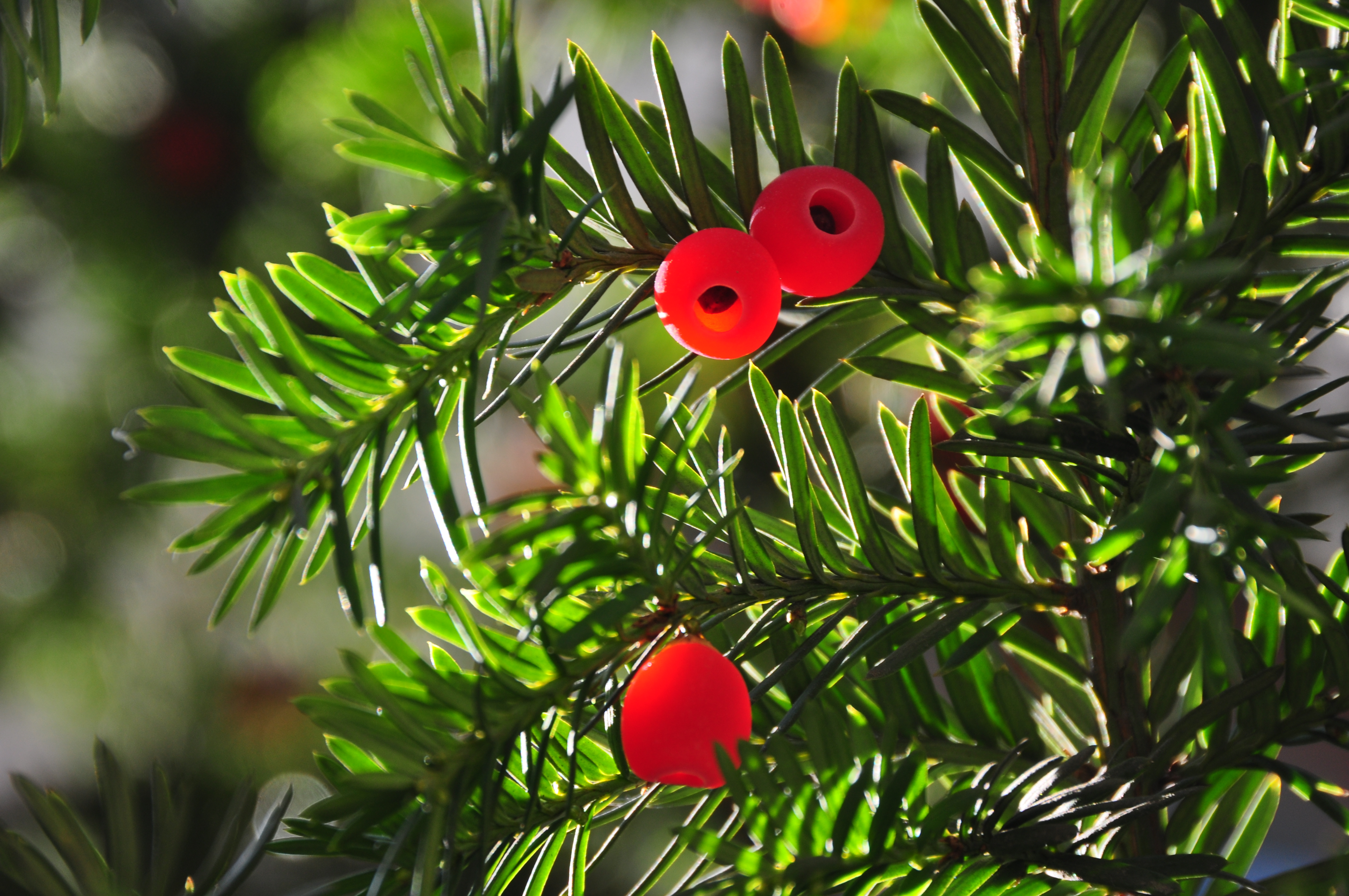Taxus baccata is a tree commonly known as Yew, or in Hindi, Talispatra. It is also called the English Yew or European Yew.
Where It Grows (Habitat):
This tree naturally grows in western, central, and southern Europe, as well as in northwest Africa, northern Iran, and southwest Asia.
What It Looks Like (Description):
-
It is a small to medium-sized evergreen tree that stays green all year.
-
It grows about 10-20 meters tall (sometimes up to 28 meters).
-
The bark is thin, scaly, and brown, and peels off in small flakes.
-
The leaves are flat, dark green, and poisonous — about 1-4 cm long.
They grow in two neat rows along the branches.
Important:
Most parts of this tree, especially the leaves, are highly poisonous if eaten.
Traditional Uses:
-
In the year 1021, famous doctor Avicenna used this plant as a heart medicine, calling it Zarnab.
-
The leaves are used to make Paclitaxel, a medicine for cancer treatment.
Earlier, this medicine was made from the bark of another Yew tree species, which led to environmental concerns. Using the leaves of European Yew became a better and safer option. -
In the Central Himalayas, people have used this plant to help treat breast and ovarian cancer.
Modern Medicinal Uses:
-
Taxus baccata contains a chemical called Taxol, which is being studied for its anti-cancer properties.
-
Although the amount of Taxol in this tree is small, it’s still useful for research.
-
This plant is sometimes used for chest problems like cough and asthma, but only by experts because it’s very poisonous.
Note:
It should never be used without a doctor’s advice because of its strong toxic effects.
Therapeutic Uses:
Different parts of the plant (except the soft fruit part) have these effects:
-
Relieves muscle spasms
-
Fights cancer cells
-
Strengthens the heart
-
Promotes sweating
-
Helps bring menstruation
-
Clears phlegm
-
Acts as a pain reliever
-
Helps with constipation
Medicinal uses include:
-
Internally:
Used for asthma, bronchitis, indigestion, hiccups, rheumatism, and epilepsy. -
Externally:
The leaves are added to steam baths to relieve joint pains and rheumatism. -
In Homeopathy:
A remedy made from young shoots and berries is used for conditions like bladder infections, skin problems, headaches, heart issues, kidney troubles, and joint pains.
Caution:
This plant is very poisonous and should be used only under expert supervision.
Speech Disorder
A speech disorder, also known as a speech impairment...
ADHD
Attention-deficit / hyperactivity disorder (ADHD) is a...
Cerebral Palsy(CP)
Cerebral palsy (CP) is a group of neurological disorders...
Cancer
Cancer is a broad term for diseases where cells...




